The DINAH SAFETY
THE DINAH COVID COMPLIANCE MEASURES KEEPING US SAFE
PLEASE SEE OUR COVID WARNING AT THE END OF THE FAQ
SECTION. YOU MUST AGREE TO THIS WARNING TO ATTEND THE DINAH
California
NO RESTRICTIONS FOR LARGE GATHERINGS
California has removed entry restrictions for large indoor events. Organizers of indoor gatherings with more than 1,000 attendees are no longer required to check proof of vaccination or recent negative Covid-19 tests. For large outdoor events with 10,000 guests or more, groups also are advised to require proof of vaccination or a negative test results. There are no capacity restrictions on indoor or outdoor gatherings. The statewide mask mandate was lifted for both vaccinated and unvaccinated people.
Current meeting limits: The mask mandate has been lifted, and gathering restrictions have been transitioned to recommendations.
PLEASE SEE OUR COVID WARNING AT THE END OF THE FAQ SECTION. YOU MUST AGREE TO THIS WARNING TO ATTEND THE DINAH
COVID 19 PROTOCOLS
The DINAH SAFETY
DO YOU RECOMMEND A COVID TEST FOR EVERYONE, REGARDLESS OF VACCINATION STATUS?
Yes we do. If you are attending the Dinah Shore Weekend 2024 event, we highly recommend you take a home Covid test within 24 hours of attending your first Dinah event. This is not mandatory but we urge you to do so. We realize as should you, that our safety measures are only as good as the safety measures taken by all of our guests. Protect your community and the event by taking a home test within 24 hours prior to your first event to insure you are Covid free. If you test positive, PLEASE DO NOT COME TO THE EVENT EVEN IF YOU FEEL FINE. The way to have a safe Dinah is for all of us to behave responsibly and with care for our community. Please take a home test before you arrive at the event. This test is about $25.00 for two tests at any drugstore and is considered 70% reliable.
WHAT HAPPENS IF I TEST POSITIVE PRIOR TO OR AT THE FESTIVAL?
We ask that you not attend if any of the following is true for you or anyone in your party: Within 14 days before attending the festival you have tested positive, or been exposed to someone who has tested positive for, COVID-19; Within 48 hours prior to attending the festival, you have experienced symptoms of COVID-19 (e.g., a fever of 100.4F or higher, cough, shortness of breath or difficulty breathing, chills, repeated shaking muscle pain/aches, headache, sore throat, loss of taste or smell, nasal congestion, runny nose, vomiting, diarrhea, fatigue or any other symptoms associated with COVID-19 identified by the Centers for Disease Control and Prevention); Within 14 days prior to attending the festival, you have travelled to any international territory identified by federal or applicable state or local governments as being subject to travel or quarantine advisories due to COVID-19. Please be respectful to fellow guests, staff, volunteers, vendors, and artists who choose to maintain physical distancing from others. Thank you for your cooperation and patience – we can’t wait to see you! We are trying to maintain as safe an environment as possible but we need your help to do so. So if you fall into any of the above categories, stay home and be safe! If you test positive at the event, you
will be asked to leave the event. We will roll your ticket over to a future Dinah, when you’re feeling better.
WILL FACE COVERINGS BE REQUIRED INDOORS AT MARGARITAVILLE AND OTHER DINAH PARTIES?
Masks are not currently required for indoor or outdoor festival spaces in Palm Springs.
WILL THE EVENT LOCATIONS HAVE COVID COMPLIANT CLEANING PROTOCOL?
All venues will have Covid sensitive cleaning protocols. Please check a venue’s website for more information.
WILL THERE BE HAND WASHING FACILITIES AT THE FESTIVAL?
Hand washing facilities with soap and sanitizer will be readily available throughout our venue’s restrooms.
WILL THERE BE CONTACTLESS PAYMENT OPTIONS AVAILABLE?
Yes, you can purchase all tickets on your smartphone through the See Tickets website. Each venue has its own protocol for purchasing goods and services so please feel free to contact them with any questions
SECURITY:
In addition to Covid compliance, we also use one of the top-notch security companies in Palm Springs to help us enforce our Covid safety policies and to help us maintain a safe and controlled environment. We take your safety and the quality of your experience with us very seriously. We employ both plain clothed and uniformed security who work side by side with us to make sure The Dinah environment is safe and respectful. The Dinah is an incredible and beautiful experience and we work in tandem with venue staff, security
personnel and our team to make sure you are having the time of your life and at the same time are staying safe. If you see anything of concern out of the ordinary, please let us know. You can reach out to security, hotel, venue, or Dinah staff. We’re here to help you help us keep our event awesome, safe and enjoyable. See something, Say Something. That’s the Dinah safety way!
COVID-19 WARNING
According to the Center for Disease Control and Prevention an inherent risk of exposure to COVID-19 exists in any public place where people are present. COVID-19 is an extremely contagious disease that can lead to severe illness and death. Senior citizens and guests with underlying medical conditions are especially vulnerable. By visiting this event, you voluntarily assume all risks related to exposure to COVID-19. By visiting any Dinah event, you are acknowledging that you are, on behalf of yourself or any invitees,
voluntarily assuming all risks related to exposure to COVID-19 or any other disease or inherent risks. ATTENDEE PROMISE & HEALTH ACKNOWLEDGEMENT: All attendees agree to follow festival policies (including health and safety policies) and posted instructions while at the festival. According to the CDC, older adults and people of all ages with serious underlying medical conditions may be at higher risk of death or severe
illness from COVID-19. All attendees should evaluate their risk in determining whether to attend the festival. By entering the festival, attendees voluntarily assume all risks related to exposure to COVID-19 and confirm that they will adhere to local quarantine mandates and the CDC quarantine requirements, available at https://www.cdc.gov/coronavirus/2019-ncov/if-you-are-sick/quarantine.html.
CDC RECOMMENDATIONS:
Prevention Actions to Use at All COVID-19 Community Levels
In addition to basic health and hygiene practices, like handwashing, CDC recommends some prevention actions at all COVID-19 Community Levels, which include:
Staying Up to Date with COVID-19 Vaccines
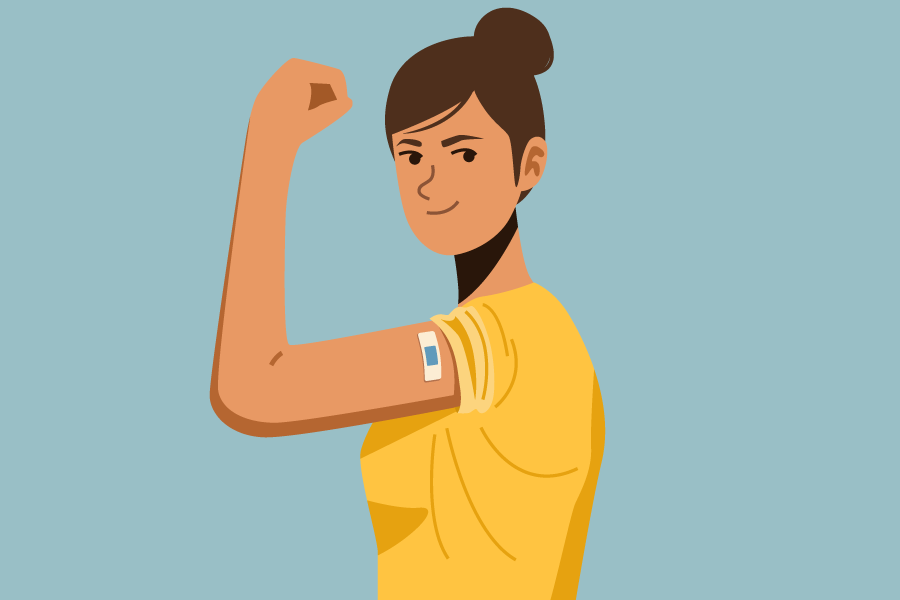
COVID-19 vaccines help your body develop protection from the virus that causes COVID-19. Although vaccinated people sometimes get infected with the virus that causes COVID-19, staying up to date on COVID-19 vaccines significantly lowers the risk of getting very sick, being hospitalized, or dying from COVID-19. CDC recommends that everyone who is eligible get a booster and stay up to date on their COVID-19 vaccines, especially people with weakened immune systems.
If you are moderately or severely immunocompromised or severely allergic to COVID-19 vaccines: Talk with a healthcare provider about whether you are eligible for a medicine called Evusheld that you can take before you are exposed to the virus. This medicine is a combination of two monoclonal antibodies provided together. Evusheld can help prevent infection from the virus that causes COVID-19 for 6 months. See additional information for making a COVID-19 plan to protect yourself from infection.
To find COVID-19 vaccine locations near you: Search vaccines.gov, text your ZIP code to 438829, or call 1-800-232-0233.
Improving Ventilation and Spending Time Outdoors
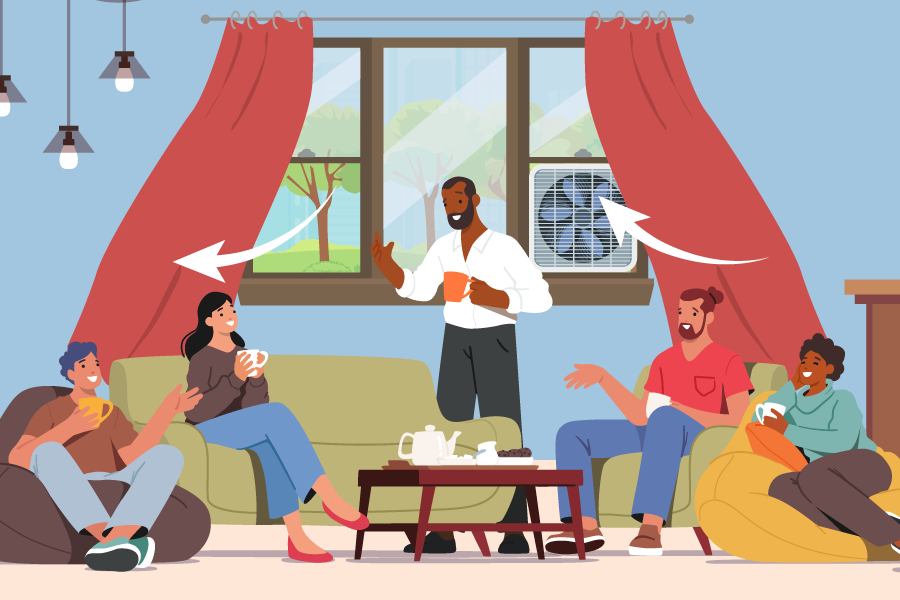
Improving ventilation (moving air into, out of, or within a room) and filtration (trapping particles on a filter to remove them from the air) can help prevent virus particles from accumulating in indoor air. Improving ventilation and filtration can help protect you from getting infected with and spreading the virus that causes COVID-19. Spending time outside when possible instead of inside can also help: Viral particles spread between people more readily indoors than outdoors.
Actions that can improve ventilation and filtration include:
- Bringing in as much outdoor air as possible—for example, opening windows.
- Increasing air filtration in your heating, ventilation, and air conditioning (HVAC) system, such as by changing filters frequently and using filters that are properly fitted and provide higher filtration.
- Using portable high-efficiency particulate air (HEPA) cleaners.
- Turning on exhaust fans and using other fans to improve air flow.
- Turning your thermostat to the “ON” position instead of “AUTO” to ensure your HVAC system provides continuous airflow and filtration.
CDC’s interactive ventilation tools can help you see how much you can improve ventilation in your home or school.
Moving indoor activities outdoors
You are less likely to be infected with COVID-19 during outdoor activities because virus particles do not build up in the air outdoors as much as they do indoors. As the COVID-19 Community Level rises, consider increasing the number of group activities you move outside.
Financial support may be available to certain entities, like schools, to make ventilation improvements.
Getting Tested for COVID-19 If Needed
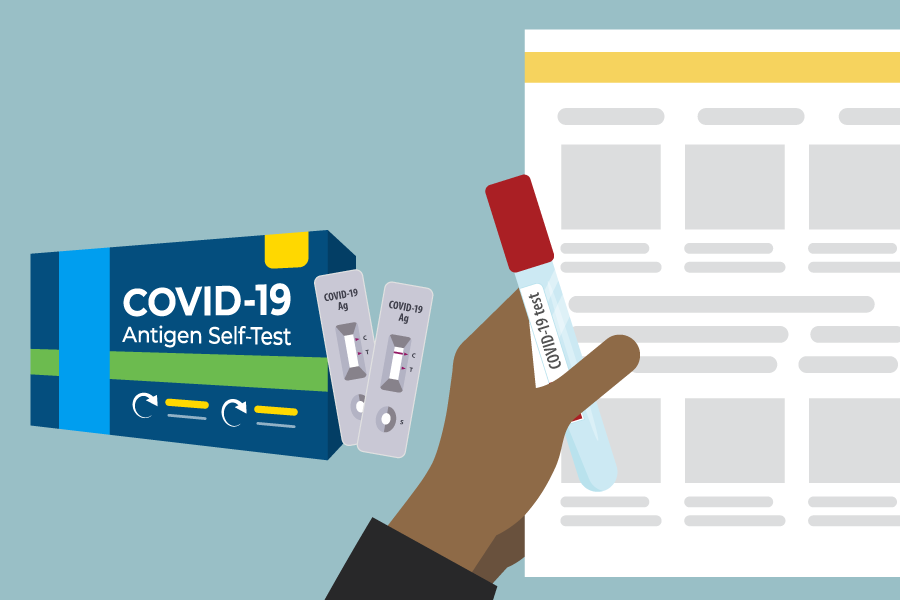
The DINAH SAFETY
Get tested if you have COVID-19 symptoms. A viral test tells you if you are infected with the virus that causes COVID-19. There are two types of viral tests: rapid tests and laboratory tests. These tests might use samples from your nose or throat, or saliva. Knowing if you are infected with the virus that causes COVID-19 allows you to take care of yourself and take actions to reduce the chance that you will infect others.
CDC’s Viral Testing Tool is an online, mobile-friendly tool that asks a series of questions and recommends actions and resources based on your responses. It can help you interpret what your test result means.
You can also access tests the following ways:
- Order free self-tests at COVIDtests.gov. Free tests are also available through local health departments.
- If you have Medicare Part B, including those enrolled in a Medicare Advantage plan, Medicare will cover up to 8 free self-tests each calendar month from participating pharmacies and providers. Private health insurance may also reimburse the cost of purchasing self-tests. Visit FDA’s website for a list of authorized tests.
- Call your healthcare provider, visit a community testing site, or call your local health department for more options.
Following Recommendations for What to Do If You Have Been Exposed
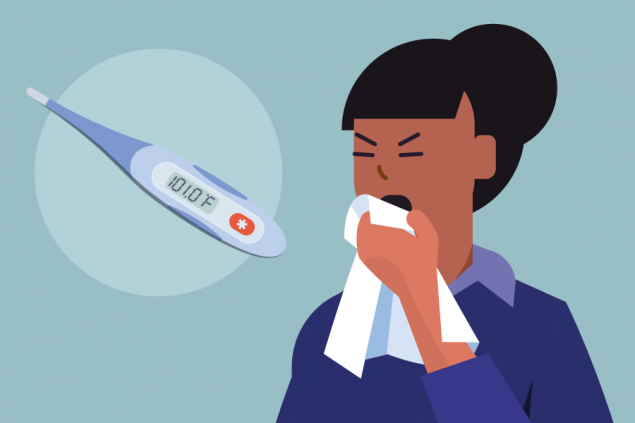
If you were exposed to someone with COVID-19, you may have been infected with the virus. Follow CDC’s recommendations for what to do if you were exposed. This includes wearing a high-quality mask when indoors around others (including inside your home) for 10 days, testing, and monitoring yourself for symptoms.
Staying Home When You Have Suspected or Confirmed COVID-19
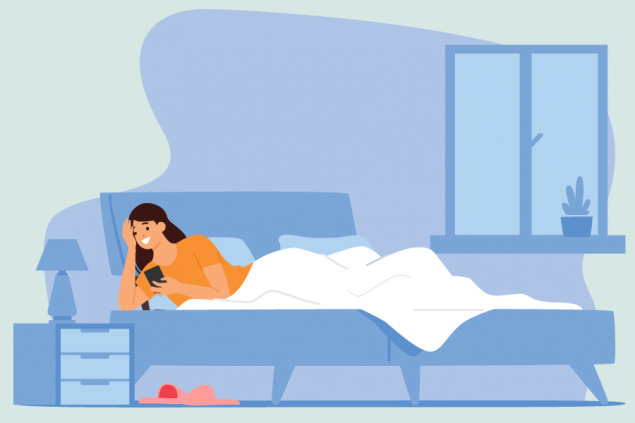
If you have COVID-19, you can spread it to others, even if you do not have symptoms. If you have symptoms, get tested and stay home until you have your results. If you have tested positive (even without symptoms), follow CDC’s isolation recommendations. These recommendations includes staying home and away from others for at least 5 days (possibly more, depending on how the virus affects you) and wearing a high-quality mask when indoors around others for a period of time.
Seeking Treatment If You Have COVID-19 and Are at High Risk of Getting Very Sick
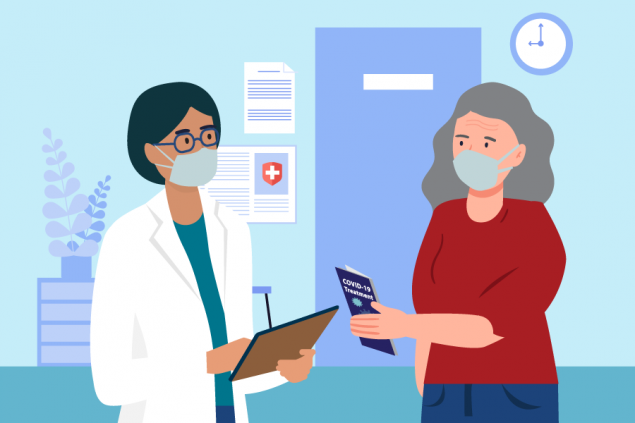
Effective treatments are now widely available and free, and you may be eligible.
- Contact your healthcare provider, health department, or Community Health Center to learn about treatment options.
- Don’t delay! Treatment must be started within a few days after you first develop symptoms to be effective.
- If you don’t have timely access to a healthcare provider, check if a Test to Treat location is in your community. You can get tested, receive a prescription from a healthcare provider (either onsite or by telehealth), and have it filled all at one location.
Avoiding Contact with People Who Have Suspected or Confirmed COVID-19
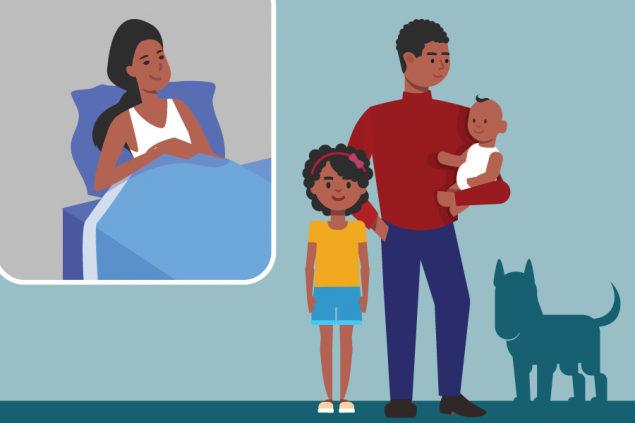
Avoiding contact with people who have COVID-19, whether or not they feel sick, can reduce your risk of catching the virus from them. If possible, avoid being around a person who has COVID-19 until they can safely end home isolation. Sometimes it may not be practical for you to stay away from a person who has COVID-19 or you may want to help take care of them. In those situations, use as many prevention strategies as you can, such as practicing hand hygiene, consistently and correctly wearing a high-quality mask, improving ventilation, and keeping your distance, when possible, from the person who is sick or who tested positive.
Prevention Actions to Add as Needed
There are some additional prevention actions that may be done at any level, but CDC especially recommends considering in certain circumstances or at medium or high COVID-19 Community Levels.
Wearing Masks or Respirators
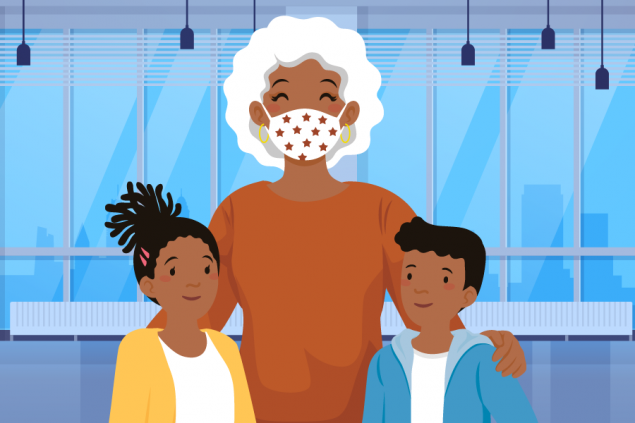
Masks are made to contain droplets and particles that you breathe, cough, or sneeze out. A variety of masks are available. Some masks provide a higher level of protection than others.
Respirators (for example, N95) are made to protect you by fitting closely on the face to filter out particles, including the virus that causes COVID-19. They can also block droplets and particles you breathe, cough, or sneeze out so you do not spread them to others. Respirators (for example, N95) provide higher protection than masks.
When wearing a mask or respirator (for example, N95), it is most important to choose one that you can wear correctly, that fits closely to your face over your mouth and nose, that provides good protection, and that is comfortable for you.
Increasing Space and Distance
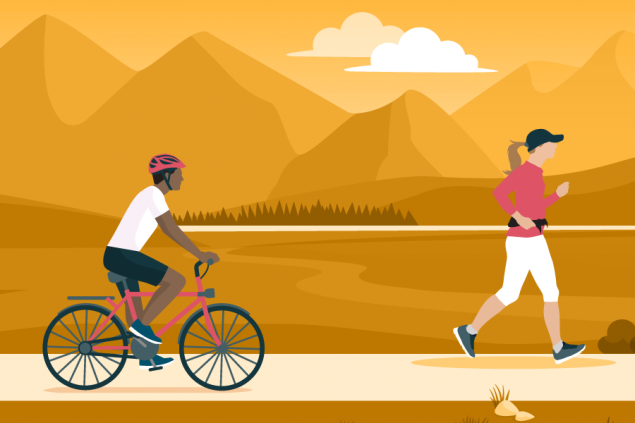
Small particles that people breathe out can contain virus particles. The closer you are to a greater number of people, the more likely you are to be exposed to the virus that causes COVID-19. To avoid this possible exposure, you may want to avoid crowded areas, or keep distance between yourself and others. These actions also protect people who are at high risk for getting very sick from COVID-19 in settings where there are multiple risks for exposure.
